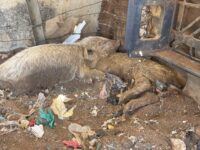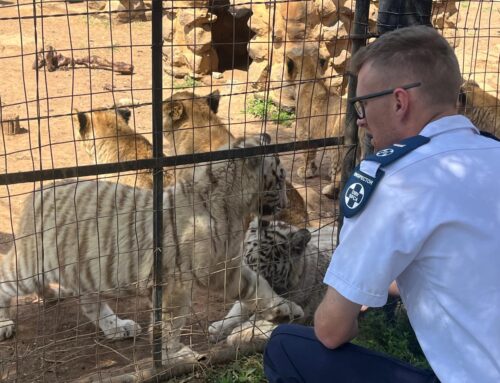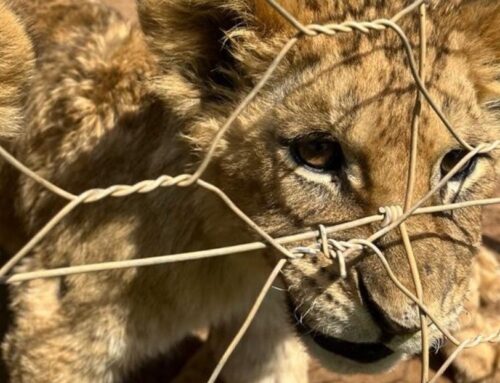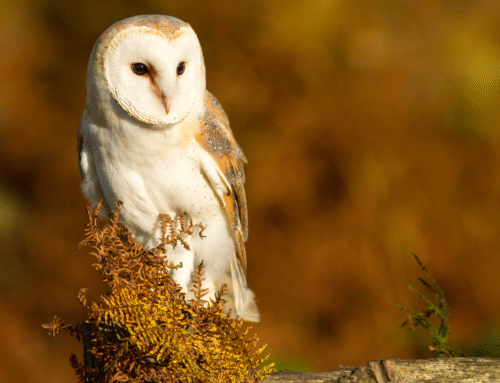The recent opinion piece by Khorommbi Matibe and Jonathan Denga of the North West Parks and Tourism Board (NWPTB), titled “At a Crossroads: Sustainable Solutions for Madikwe’s Elephant Overpopulation Crisis”, outlines the challenges of managing elephant populations within the Madikwe Game Reserve. While we appreciate the Board’s candour and its willingness to accept responsibility for the current situation, we are alarmed by the framing and normalisation of lethal reduction as both viable strategy and economic opportunity.
Elephants are sentient, intelligent beings with intricate social structures and emotional lives. Any policy that positions the culling or hunting of elephants as the most “realistic” course of action must be rigorously questioned, not only in terms of conservation science but with regard to its ethical underpinnings. As the statutory body tasked with upholding animal welfare across South Africa, the National Council of SPCAs (NSPCA) cannot allow such proposals to pass without scrutiny.
Commodification over Conservation?
The Board’s op-ed makes a number of claims about ecological degradation and overpopulation. While it is true that Madikwe’s elephant population has grown substantially within the confines of a fenced reserve – far beyond the original population design of 250 – the suggestion that the solution lies in killing off animals to fund conservation is both deeply troubling and short-sighted.
Lethal reduction, whether in the form of culling or so-called trophy hunting, cannot be repackaged as an income stream to plug holes in long-neglected management systems. The commodification of wildlife under the guise of “sustainable utilisation” erodes not only the ethical foundation of conservation, but also South Africa’s international reputation as a country committed to humane and responsible environmental stewardship.
Economic hardship, inequality, and community upliftment are real and pressing challenges. But these cannot be solved by reducing living beings to financial levers, especially not when their overpopulation is a direct consequence of human mismanagement: poor planning, no contraception programmes, and a lack of long-term ecological foresight.
A Manufactured Crisis
Madikwe’s elephants are not wild in the truest sense of the word. These are animals confined within a 750km² fenced reserve, with no natural migration routes and few natural predators. The system in which they exist is artificial by design. To now suggest that “letting nature take its course” is no longer an option is to ignore the fact that nature’s course was altered the moment humans erected the fences.
We agree that intervention is necessary. But that intervention must be of the highest calibre – grounded in welfare-centric, wellbeing-focused, and evidence-based strategies. The goal should not be to engineer a quick fix that restores photographic aesthetics or tourism value, but to manage a compromised system as humanely and holistically as possible.
It is worth noting that the individuals who authored the op-ed are not new to conservation leadership. Mr Khorommbi Matibe currently chairs the North West Parks and Tourism Board and has held a senior post at the Department of Forestry, Fisheries and the Environment since 2017. Mr Jonathan Denga is both Acting CEO of the Board and Director for Biodiversity Management and Conservation in the North West province, with 25 years of experience in the field. Between them, they bring more than six decades of governmental experience. The elephant population crisis at Madikwe did not occur overnight, it developed under long-term watch. Responsibility for both the state of the reserve and the solutions put forward now cannot be separated from the tenure and oversight of those in leadership.
Culling Is Not a Revenue Model
The op-ed not only proposes culling as a tool, but implies its economic benefits as a reason to favour it. This is a dangerous precedent. Culling must never be used to generate income. If culling were to occur – as a last resort only – it must be conducted by professional, independent wildlife veterinarians and specialist teams trained to minimise suffering. The NSPCA will not permit “pot-shots” by trophy hunters under the banner of population control. Nor will we stand by while decades of negligence are financially rewarded through the monetisation of dead elephants.
We recognise that the carcasses of culled animals may be processed, and that this implies a financial return. In such cases, all proceeds must be transparently reinvested into genuine conservation initiatives within the reserve. Not siphoned off as a blank cheque for poor governance.
The Alternatives Still Stand
Despite the narrative put forward by the NWPTB, alternatives to lethal control remain not only possible but preferable. Immunocontraception has advanced significantly in recent years and has been successfully used in other reserves in South Africa. While logistically complex, it offers a non-lethal, scalable way to stabilise populations over time.
Likewise, translocation, especially as part of broader range expansion programmes and regional cooperation, must be properly explored before any irreversible actions are taken. The White Paper on Conservation explicitly highlights these options. To dismiss them as “unrealistic” betrays a failure of imagination or will, not evidence.
Moreover, the dichotomy drawn between “consumptive” and “non-consumptive” tourism is false. Photographic tourism and community benefit can, and should, coexist, without killing.
Accountability, Transparency, and Inclusion
The NWPTB positions itself as being driven by constitutional and scientific obligations. Yet Section 24 of the Constitution is about both utilisation and protection. Conservation and ethics are not mutually exclusive. Sustainable use must, by definition, be humane use.
In this light, we are deeply concerned by the ongoing exclusion of the NSPCA from key decision-making processes. Despite being formally requested by the Parliamentary Portfolio Committee for Forestry, Fisheries and the Environment (PPCFFE) to include the NSPCA in the Provincial Task Team, and to submit all relevant documentation by 13 July 2025, neither NWPTB nor DEDECT has complied.
We have not received any meeting invitation. We have not received a single document. This is not a clerical oversight; it is a deliberate act of institutional disregard, both toward the NSPCA and the Parliamentary Committee itself. It may necessitate legal intervention and will, we believe, warrant disciplinary action from the PPCFFE.
A Humane Way Forward
The path forward is not only about ecological balance; it is about moral clarity. The NSPCA calls for:
- Comprehensive, independent ecological assessments of Madikwe;
- Public management plans that include third-party welfare audits;
- Increased investment in immunocontraception technologies;
- Regional collaboration on non-lethal translocation;
- Transparent and inclusive stakeholder engagement, especially with organisations mandated to uphold animal welfare.
We recognise the challenges of managing a finite landscape with a growing elephant population. But we cannot allow desperation, political pressure, or economic strain to become a justification for cruelty. History will judge us not only by how we protect ecosystems, but by how we treat the animals that live within them.
South Africa’s wildlife deserves more than to be a line item on a budget. They deserve dignity, protection, and respect. And they deserve a future shaped by more than just convenience.
If you are as passionate about animals and their well-being as we are, consider supporting our causes by donating.
Latest News Posts
Will You Be the One Who Takes Action?
Most people will scroll past this. But will you be the one who stands up for animals?
Animal welfare isn’t always in the spotlight, but it changes lives – for every neglected, abused, or suffering animal we help. Our teams work tirelessly, often behind the scenes, ensuring animals across South Africa are protected.
This work is relentless. The challenges are immense. But with more hands, hearts, and resources, we can do even more.
The equation is simple: the more supporters we have, the greater our reach, the stronger our impact.
Be part of the change. Become an NSPCA Project Partner today. From just R50 per month, you can help ensure that no animal suffers in silence.








